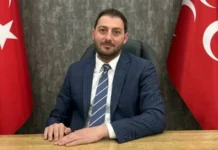Turkey’s top religious authority, the Directorate of Religious Affairs (Diyanet), has been granted sweeping new powers to oversee religious content and censor Quran translations it deems “inappropriate,” under a new law that came into effect on Wednesday, Turkish Minute reported.
Published in the Official Gazette, the legislation allows the Diyanet’s High Council of Religious Affairs to review Quran interpretations and other religious publications upon the request of government institutions.
The legislation was pushed forward last month by the ruling Justice and Development Party (AKP), which is criticized for using the Diyanet as its “backyard” and granting it extensive powers and financial resources.
According to the new law, if the council determines that such texts are “objectionable in terms of the fundamental principles of Islam,” it can order that their distribution be halted, existing copies recalled and the materials destroyed.
If the publications are online, the Diyanet may seek a court order for the removal of content or a block on access. Legal objections to these decisions are permitted, but they must be filed within two weeks. However, objections will not suspend the enforcement of the censorship or destruction orders. If appeals are not filed on time, or are rejected, the materials in question will be permanently destroyed.
The new law also allows the Diyanet to expand its activities in schools, student dormitories and hospitals by providing religious counseling services.
In December 2023 Turkey’s Constitutional Court annulled a previous regulation granting similar powers to the Diyanet, citing overreach. The AKP, however, reintroduced the provisions in a new omnibus bill, which was passed last month with the support of its ally, the Nationalist Movement Party (MHP).
Backlash from theologians
The law has sparked an outcry among prominent Islamic scholars and civil society figures, who accuse the AKP government of religious censorship and violating the freedom of belief.
Islamic theologian İhsan Eliaçık, an outspoken critic of the AKP government, condemned the regulation, saying, “They passed an Inquisition law for the Diyanet in a midnight parliamentary session.”
He was comparing the new law with the authorities granted to the historical Inquisition, a series of institutions in the Catholic Church established to suppress heresy, often through censorship, interrogation and punishment.
Professor Mustafa Öztürk, who is known for his unconventional interpretations of Islam, also expressed outrage, saying, “I will burn my own interpretation,” referring to the possibility that personal Quran commentaries could be targeted.
Another prominent scholar, Mustafa İslamoğlu, criticized the legislation for forcing a single interpretation of the Quran through a state authority, saying: “No interpretation can replace the original text. Imposing one translation while banning others is a betrayal of both revelation and reason.”
Professor Sönmez Kutlu argued that giving law enforcement powers to the Diyanet contradicts its founding principles and warned that the law could lead to legal actions against other religious works.
The Diyanet, established in March 1924 by order of Mustafa Kemal Atatürk, the founder of modern Turkey, is expected to carry out its duties in accordance with the principles of secularism, remaining outside all political views and thoughts as Turkey is a secular state. But it frequently comes under criticism for promoting the agenda and policies of the ruling AKP.
Akın Karadeniz, head of the Turkish Islamic Foundation, called the law “a clear violation of freedom of belief and expression,” adding that “interpreting the Quran is a fundamental right.”
The move comes as part of broader efforts by the Turkish government to consolidate control over religious discourse and suppress alternative interpretations of Islam. Since a coup attempt in 2016, Turkish authorities have removed tens of thousands of publications from libraries and bookstores, including Qurans and commentaries linked to the Gülen movement, a faith-based group that Ankara accuses of orchestrating a 2016 coup attempt. The group, inspired by the views of the late cleric Fethullah Gülen, denies any involvement.
Turkey’s Directorate of Religious Affairs, which has a larger annual budget than most ministries, plays a powerful role in shaping religious life in the officially secular country. It oversees the content of sermons delivered in more than 80,000 mosques and issues religious guidance in line with government policy.
As of 2023 the Diyanet employed 140,859 personnel, according to the Court of Accounts’ annual audit. Its budget for 2025 is approximately 130.2 billion Turkish lira ($3.32 billion).
The current head of the Diyanet, Professor Ali Erbaş, has held the position since his appointment in September 2017.















